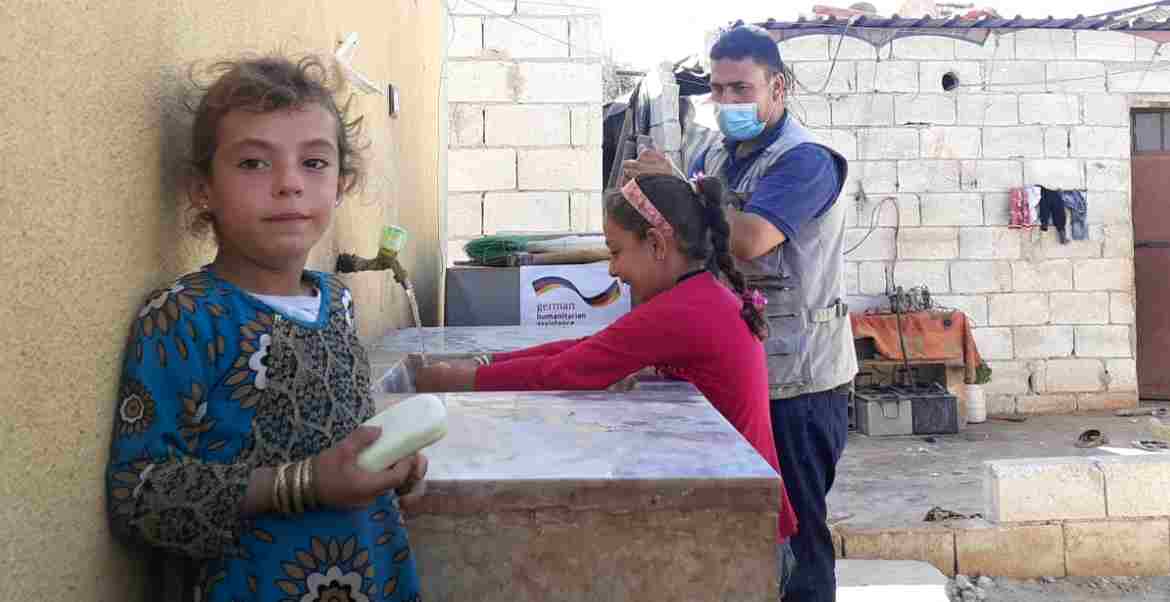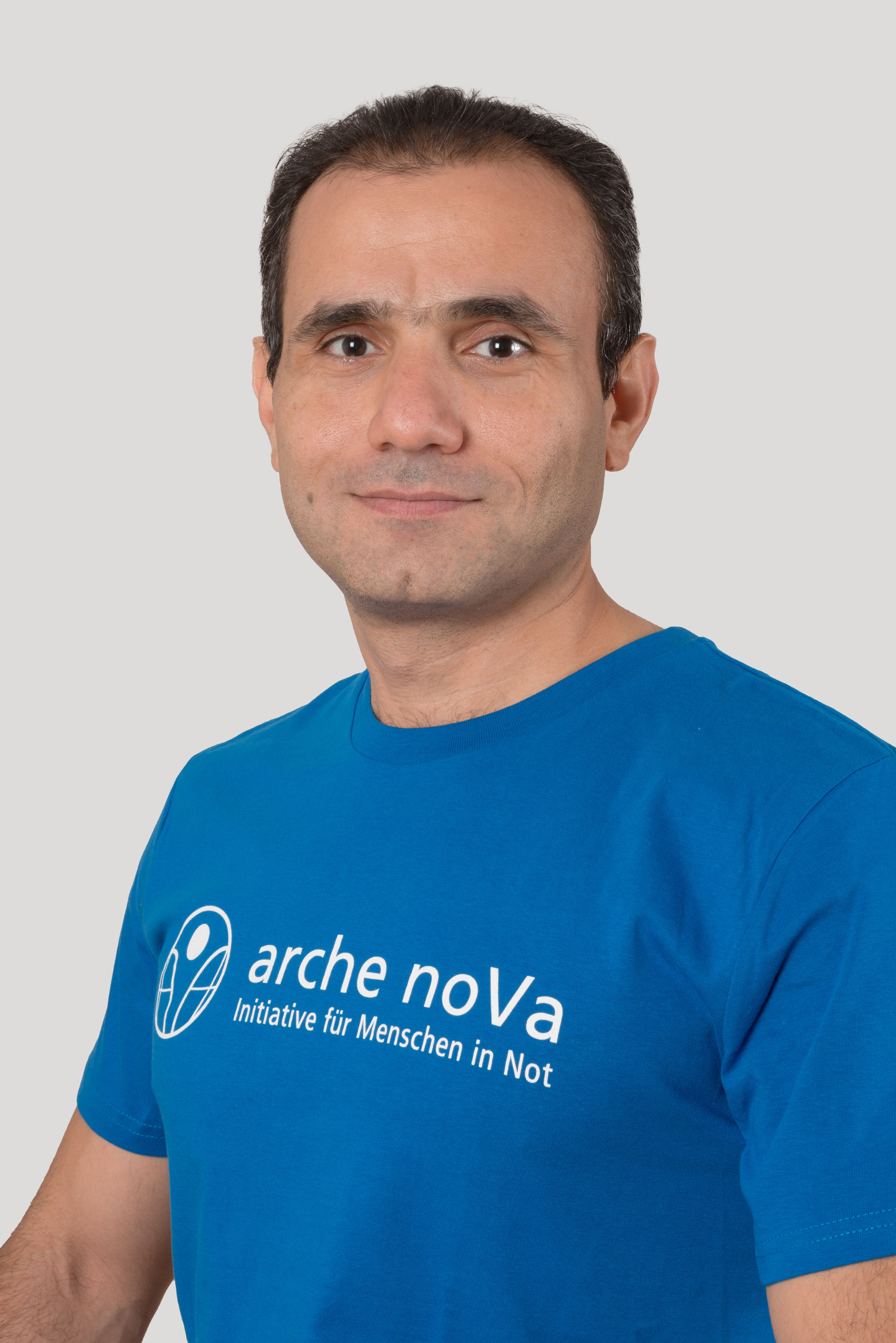Eight years ago, in 2014, Wael lived with his family in Gaziantep, a city in south-eastern Turkey. He had fled here from Aleppo with his wife and two young daughters to find safety from the war. Humanitarian aid organisations organised aid for Syria from Gaziantep, including arche noVa. He heard that we were looking for an engineer with experience in water supply. This could be a good match, Wael thought, as he had worked for many years in Aleppo as an engineer in the municipal water supply.
Developing a perspective for the future is difficult
Soon he and a small team started to repair destroyed water pipes and pumps in the north of Syria on behalf of arche noVa, but also to distribute food and drinking water to the people. In the meantime, the war in Syria has lasted eleven years. Just a few weeks ago, another rocket hit a house in our project area, seven people died, five of them were children. "The constant insecurity makes it impossible for people to develop a perspective for the future. They don't know if they will have to flee again straight away. Infrastructure and economy cannot develop," says Wael.
The crisis is a permanent condition here. "That is why we are no longer focusing only on food distributions, but want to empower local people to be self-sufficient. Just recently, we started a pilot project where women bake in traditional ovens called tandors. Every day we distribute hundreds of these fresh breads in the neighbourhood."
Where we provide aid, more than half of the inhabitants are internally displaced. Some have been living in temporary shelters for ten years - in tents, shells that were not finished because of the war, or ruins. It is not uncommon for the tents to be flooded with water in the cold season, and in summer people have to endure temperatures of up to 45 degrees.
The crisis is a permanent condition here. "arche noVa takes this into account by no longer focusing only on food distributions, but by empowering the people on the ground to provide for themselves. Only recently we started a pilot project in which women bake in traditional ovens, the tandors. Tandors are round stone ovens where flatbreads are pressed against the inside walls and a fire in the centre provides heat. Every day we distribute hundreds of these fresh breads in the neighbourhood."
Wael would like very much to taste the first loaves of bread baked by the women bakers and to promote the project locally and encourage the people. But for security reasons he can no longer go to his home country and coordinates the 25-member team in northern Syria from our main office in Dresden. He wants nothing more than peace for his compatriots - that they can return to their home towns and villages and dare to rebuild.
Humanitarian Aid Day
In 2009, the United Nations proclaimed World Humanitarian Day. The date was set in commemoration of the attack on 19 August 2003 in Baghdad, which killed 22 people at UN headquarters.
Since 2009, the day of action has honoured the commitment of all humanitarian aid workers worldwide. At the same time, the day is dedicated to all those in need of emergency aid and protection.
- The need for help is so great: there are currently more conflicts and crises than there have been for a long time. In addition, there are acute emergencies as a result of climate change. According to the United Nations, around 306 million people worldwide will be in need of humanitarian aid in mid-2022. This is another increase. In 2021, there were 235 million.
- This is what arche noVa does: Since its foundation 30 years ago, arche noVa has been providing humanitarian aid. Currently, we are present with emergency aid in Ukraine, Syria and Somalia. At the same time, our longer-term projects help to strengthen the resilience of communities and improve disaster preparedness.
- Your contribution is important: a disaster does not wait for donations to flow. With the support for our emergency fund, with a sustaining membership or earmarked donations, arche noVa receives the means to be able to go into humanitarian action flexibly and quickly.














